
Flag #23 - A Step Forward as Engineering Manager
When do we realize that we are changing? If I try to compare two adjacent days in my life, I probably won't even notice any differences. On the other extreme point, a lot of things have changed in the last 10 years. Looking back, I was a university student and couldn't even have a thought of working abroad back then. It's the series of cumulative experiences and small changes everyday that shape what I am today.
During my penultimate university year back in 2014, I got a chance to experience my first internship abroad at HDE, a cloud security company. Moving forward, I graduated a year later and joined the company as a fresh graduate. Around early 2019, we changed our name from HDE to HENNGE. Incidentally, HENNGE is the combination of two words "Henka" and "Challenge", where "Henka" means "Change" in English.
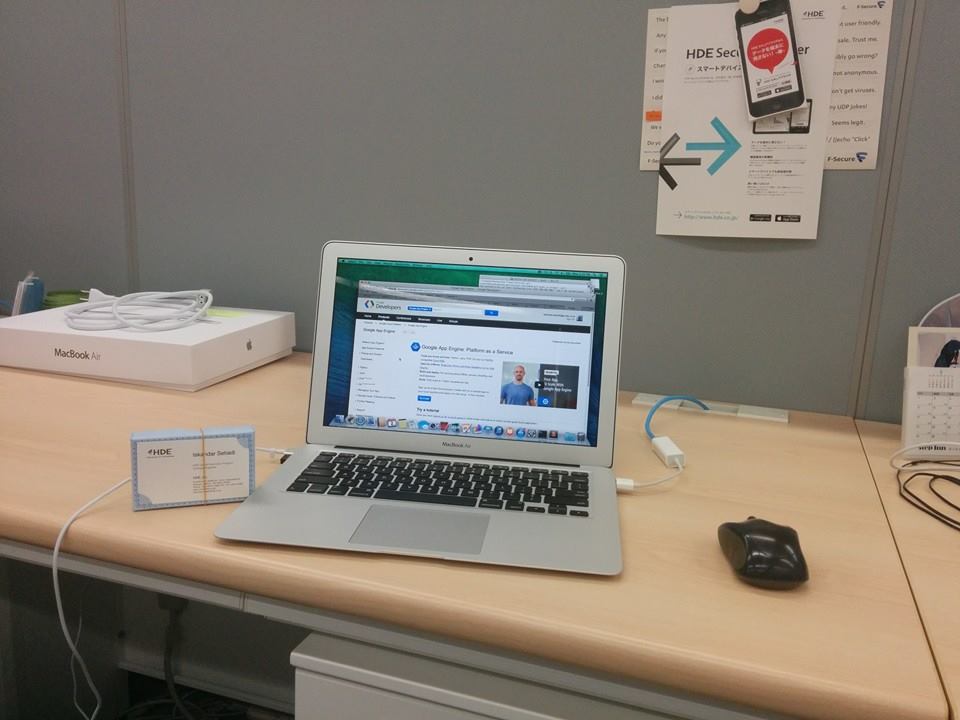
First internship experience back in 2014
The name resonates well with my belief. Our nature will force us not to take any risks when we are comfortable enough with our life. However, a status quo doesn't necessarily mean that nothing will ever change in the long run. There will be external factors playing and the question will become whether we are ready to face it or not. Market recession, natural disasters, life events (birth & death of someone) will affect us sooner or later. The least that we can do is to challenge ourselves out from the stagnancy, so that we are well-prepared in facing any unexpected events.
In terms of business, we have seen examples from both sides of the spectrum. IBM used to be the largest tech giant with their mainframe computer business but they failed to shift their business to personal PC business. Microsoft, Intel, Apple are a few names that we recognize better than IBM nowadays. Another story, I also remember that Kodak was famous back during my childhood with their analog camera & film printing business. Due to the popularity of smartphone & digital cameras, Kodak was finally filing for bankruptcy back in 2012. On the other part of the spectrum, we know big names such as Amazon. Initially, they started their business by selling books online back in 1994. Nowadays, they are known for their biggest online store and for us developers, we know Amazon Web Services as the biggest cloud platform out there.
HENNGE also has similar inspiring stories from the founders. They started a Linux server management software business back in 1996. In between, there are a lot of successful & failed products, ranging from email delivery software to antivirus software. In 2011, there was a big 9.0M earthquake in Japan and they understood that redundancy is really important for digital data and cloud technology offers a solution for this problem. When I joined the company as an intern (2014), we had around 100,000 contracted users with less than 15 cloud engineers. We finally became a public company in 2019, surpassed 2,000,000 contracted users, and had more than 35 cloud engineers in our division.
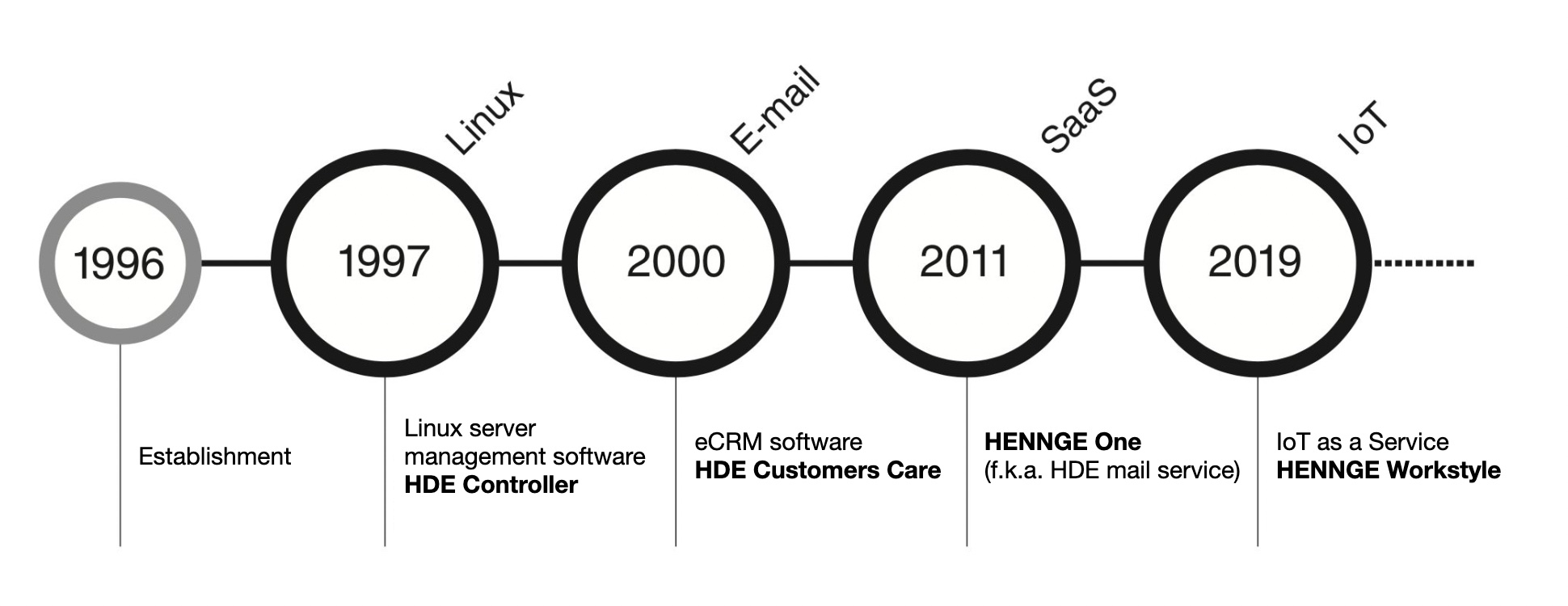
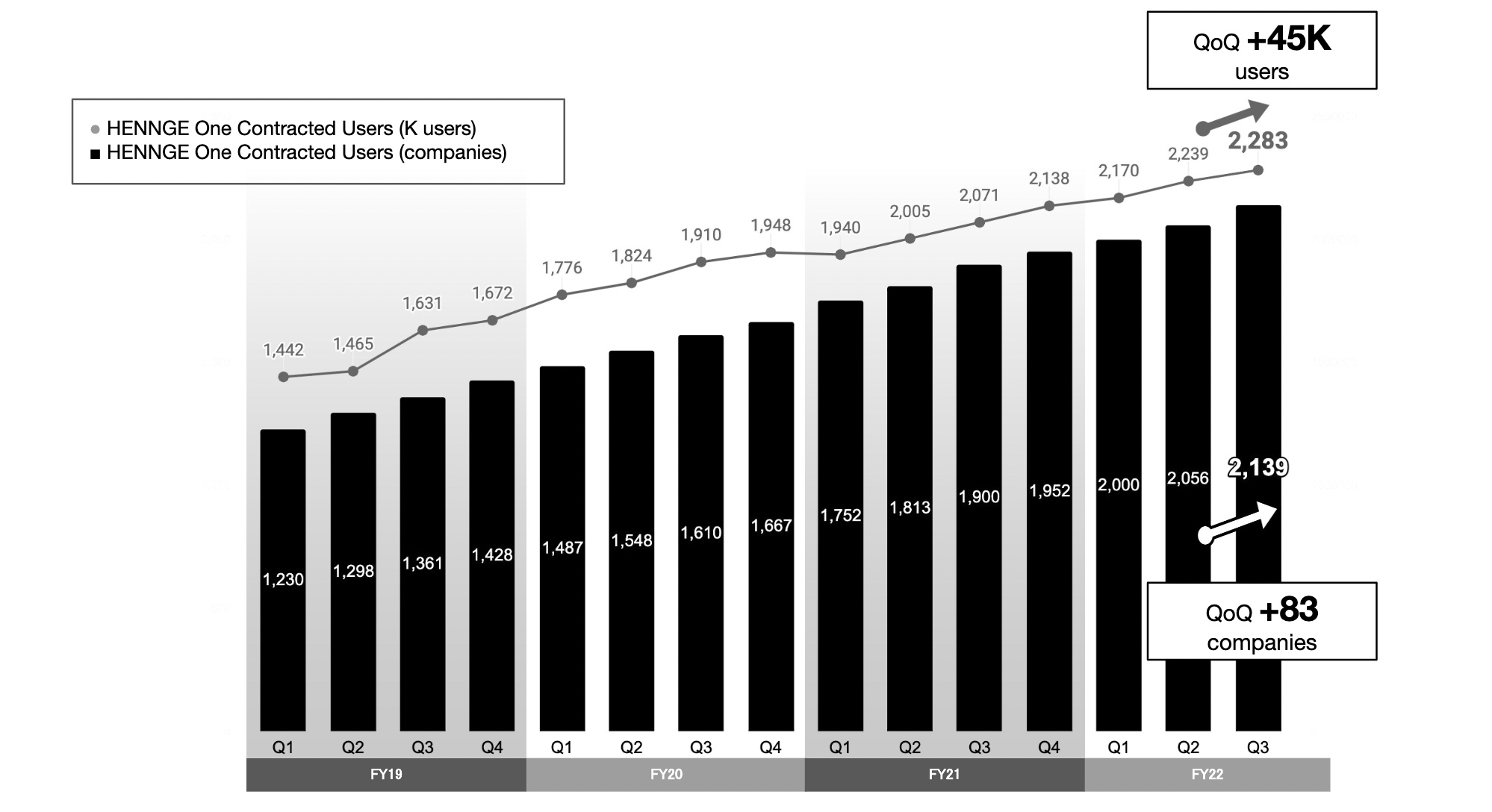
Challenges
Several years ago, we started to realize that our growth is no longer sustainable with the organization structure that we had back then. Our division consisted of 1 division manager, several product leaders, and more than 20 software engineers (backend, frontend, infra, mobile, QA). While growth is definitely a good thing, it also brought us several challenges.
One challenge that we identified as the biggest is communication issues. With a division of ~10 people, we could gather everyone in a single meeting room, have everyone speak out for 5 minutes, and end the whole meeting in 1 hour. With a division of 20+ people, this is no longer effective and too time-consuming. In addition, it got harder to share information face-to-face with everyone outside our division as other divisions were also growing. Members started to think that the company is not transparent while the actual problem is there's no good pipeline to let everyone know what they want to know. It's hard to know what each member wants to hear.
The next big challenge is people management. It is widely known that engineers like to talk with machines better than humans and we don't want to have too many meetings. As pointed above, we still need to communicate with various stakeholders and if there's not enough people who can bridge these communication issues, engineers will become unsatisfied with their daily jobs and it will also make their days unproductive. Without a clear way of managing people, there will be no product, career progression, and at the end of the day, people will leave the job.
After those 2 big challenges above, product management is the next blocker. With the democratic bottom-up approach, it's easy to have different conflicting opinions between existing members. Our members come from more than 10 different countries, resulting in more diversified opinions and thoughts. Nevertheless, we needed to make a decision and top-down flow is sometimes necessary for resolving conflicts. In addition, goals were spoken verbally but there was no clear way to manage it on the higher level.
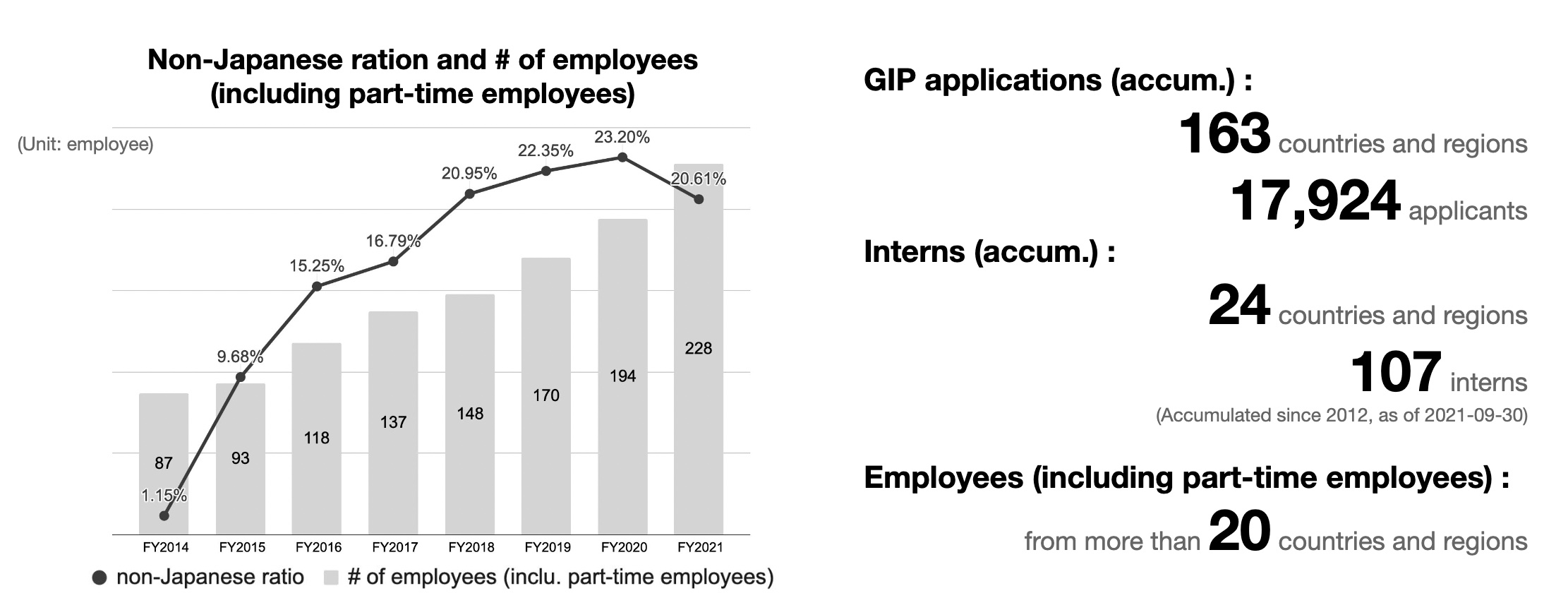
Number of foreigners has increasing steadily
Last but not least, recruiting activity is important to fill the remaining gap. We used to have dedicated interviewers for each step but we knew that this flow was not ideal. It's not scalable and prone to schedule conflicts if one of the required interviewers took a long vacation. If we want to add more interviewers, it means we need to share similar standards among us. In addition, we also started opening more positions and we needed to have different expectations for each role.
Actions
Around 2 years ago, we decided to establish a deputy division manager position and I got the opportunity to partake in this newly created role. It's around the same time as COVID-19 resurgence, which brought an extra challenge as our working style has shifted so much from the pre-COVID era. It was quite a challenge since the role itself is new and there was no clear expectation or guideline on it. What I knew back then was our division manager took overwhelming tasks and couldn't have enough time to do everything that we needed to do.
As communication was clearly the highest priority, the first action was to create a lot of sync pipelines and try to reduce the number of people in each meeting. Members will have regular 1-on-1 with their leaders, these leaders will have regular 1-on-1 with us (managers), and we will have regular sync with the higher-ups (executives). In addition, the PMM division was established half a year later and we developed better communication between us. We also created more sync between different divisions and organized several channels in Slack to increase the transparency of shared information. Private discussions are less encouraged and most meetings should prepare a summary to be shared in these channels. Last year, we also appointed 2 new deputy division managers to help us in tackling our division challenges.
Afterwards, we started to think about improving people management in our division. We checked our members' satisfaction & anonymous feedback via a monthly engagement system. We also mapped members' skills and preferences via talent mapping questionnaire. Since we're also entering post-COVID era, we wanted to do some team building activities so we went to workation in Beppu together several months ago. In addition, we put more emphasis on talent development by providing Udemy licenses to everyone. It's important to know each member has different skills on different tasks as seniority doesn't guarantee higher level of knowledge on specific fields.
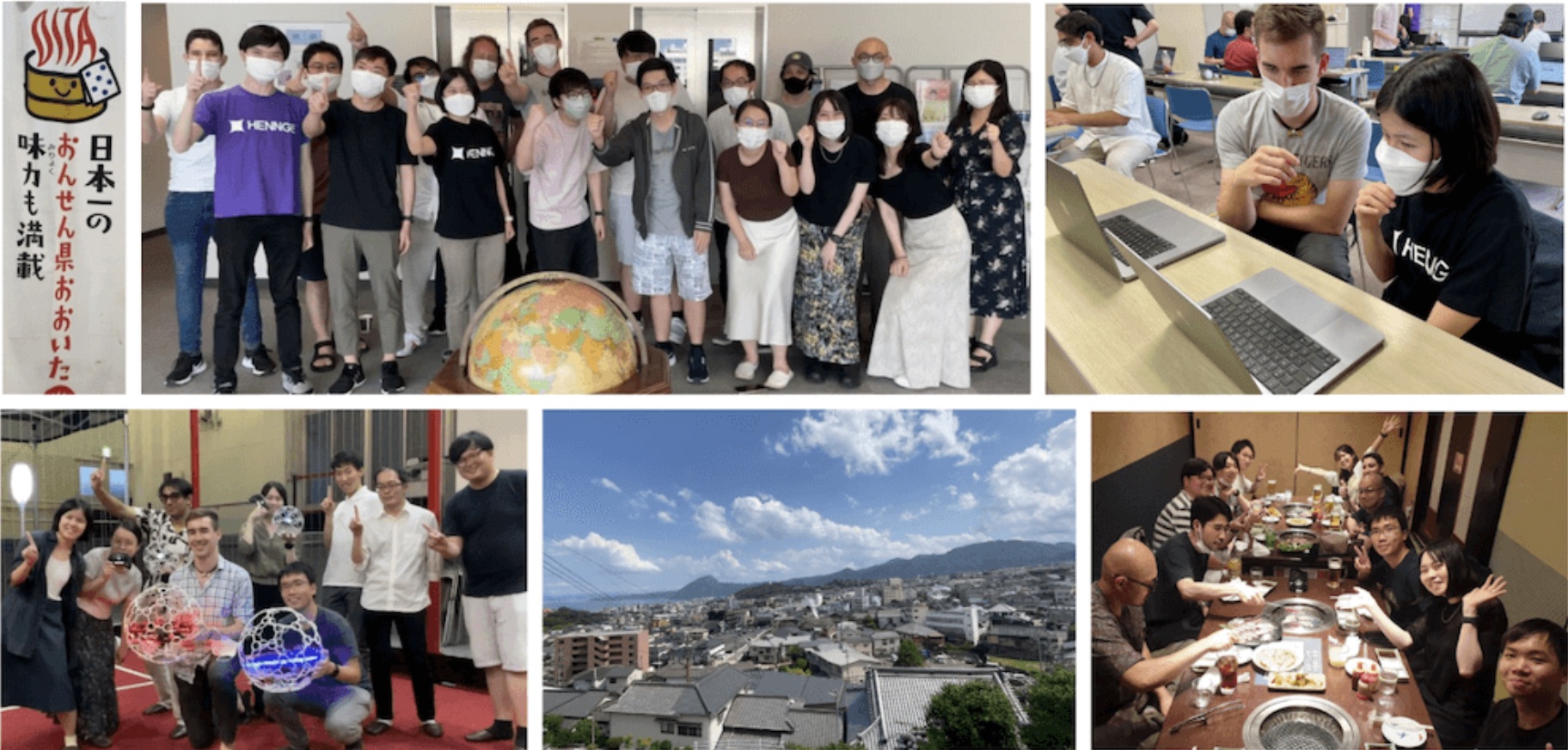
Workation in Beppu (June 2022)
For product management, the newly created PMM division has helped offload the majority of our workloads. We utilized Productboard to manage the short-term & long-term goals of each product. This written information not only helped us in having better shared understanding, but it also helped us in communicating our plans with other stakeholders (Sales, etc). Several product teams also improved their methodology, such as adapting Scrum, better release cycles, and so on. PMM also helped us bring back feedback from various stakeholders, in addition to doing market research activities.
As for recruiting, we involve more members in the process until we don't have a single point (member) of failure. We developed an improved scorecard system, which is used by the document screeners and interviewers to judge our candidates. It's definitely far from a fail-proof system as soft skills are much more important to judge and they are very subjective to the interviewers, but it's an improvement from nothingness. We also revamped all the job postings, as it's important to give the best impression to the candidates from the first time. Afterwards, we created a more detailed plan for hiring after discussing it with each product member: number of expected hires, quality of each expected hires, diversity factors, and so on.
There are definitely more challenges and actions taken but we don't want to write the entire book down here. To name a few, our GIP (Global Internship Program), budgeting are things that we are working on.
Future
Starting from today, I'm honored to be appointed as a division manager for the cloud engineering members!
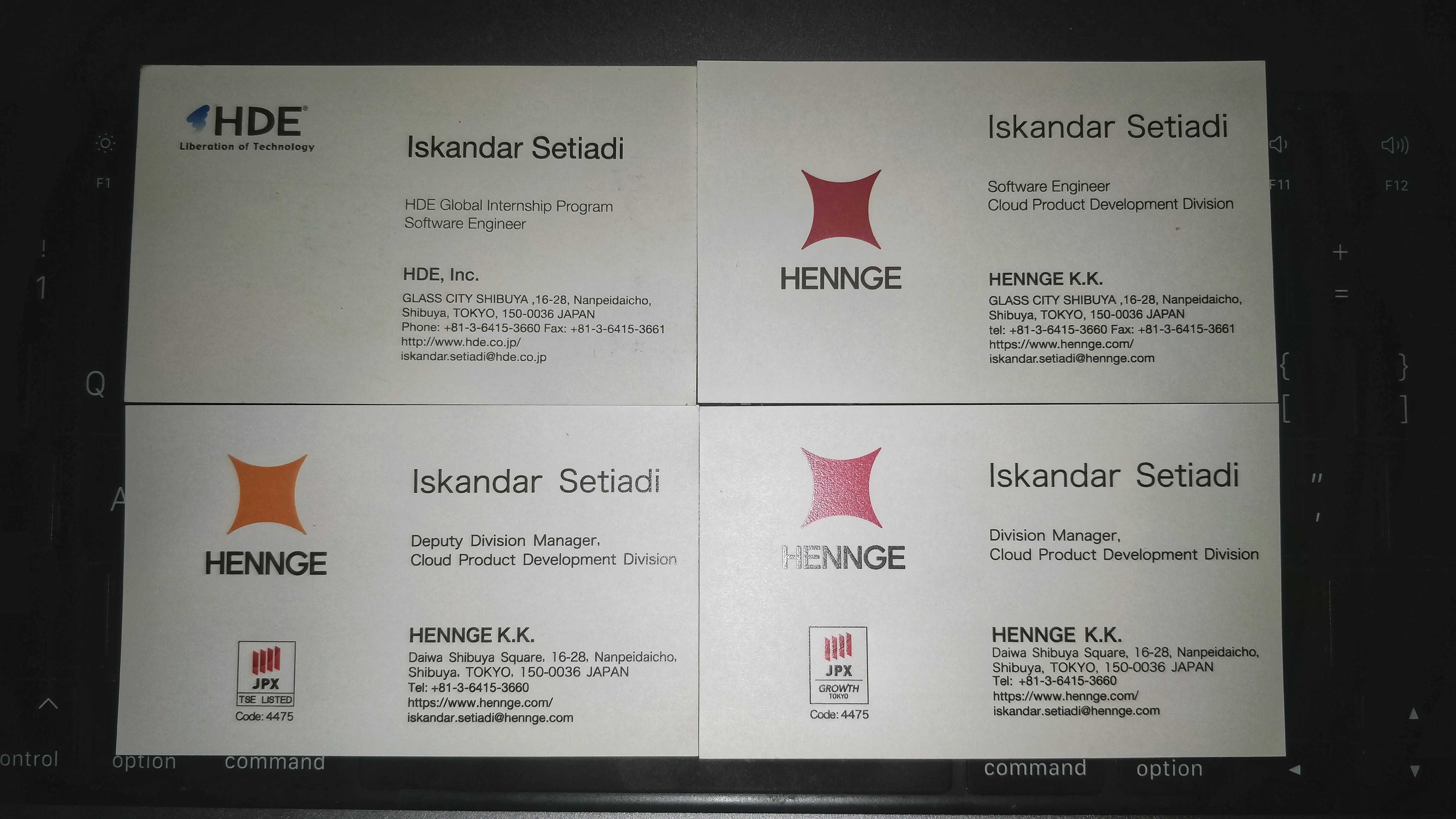
What's next? A completely new post-COVID era lies ahead, Japan will open the border without any limitations on October 11th. On the other hand, market conditions are worsening after numerous lay-offs from other IT tech giants and weakening Yen against USD. These numerous external factors will bring new challenges and opportunities.
Management is all about continuous improvement and there's no end of it. However, as we have more exceptionally talented members in HENNGE, we can always work on the shared goals together. After our internal organization is getting better, it's also time to improve things externally. We want to hear more from our existing customers, so that we can improve their satisfaction and bring us to success together. In addition, we want to fill more gaps which have not been filled by others. As we strive for liberation of technology on the global scale, we want our voice to reach more people worldwide.
There will definitely be more challenges in the future, but life will be boring without them, right?
By the way, we are looking for highly talented engineers who can take on senior roles! Please check our openings at recruit.hennge.com. And also, HENNGE is a Platinum sponsor of PyCon JP 2022 next week, see you in the venue if you're joining!
